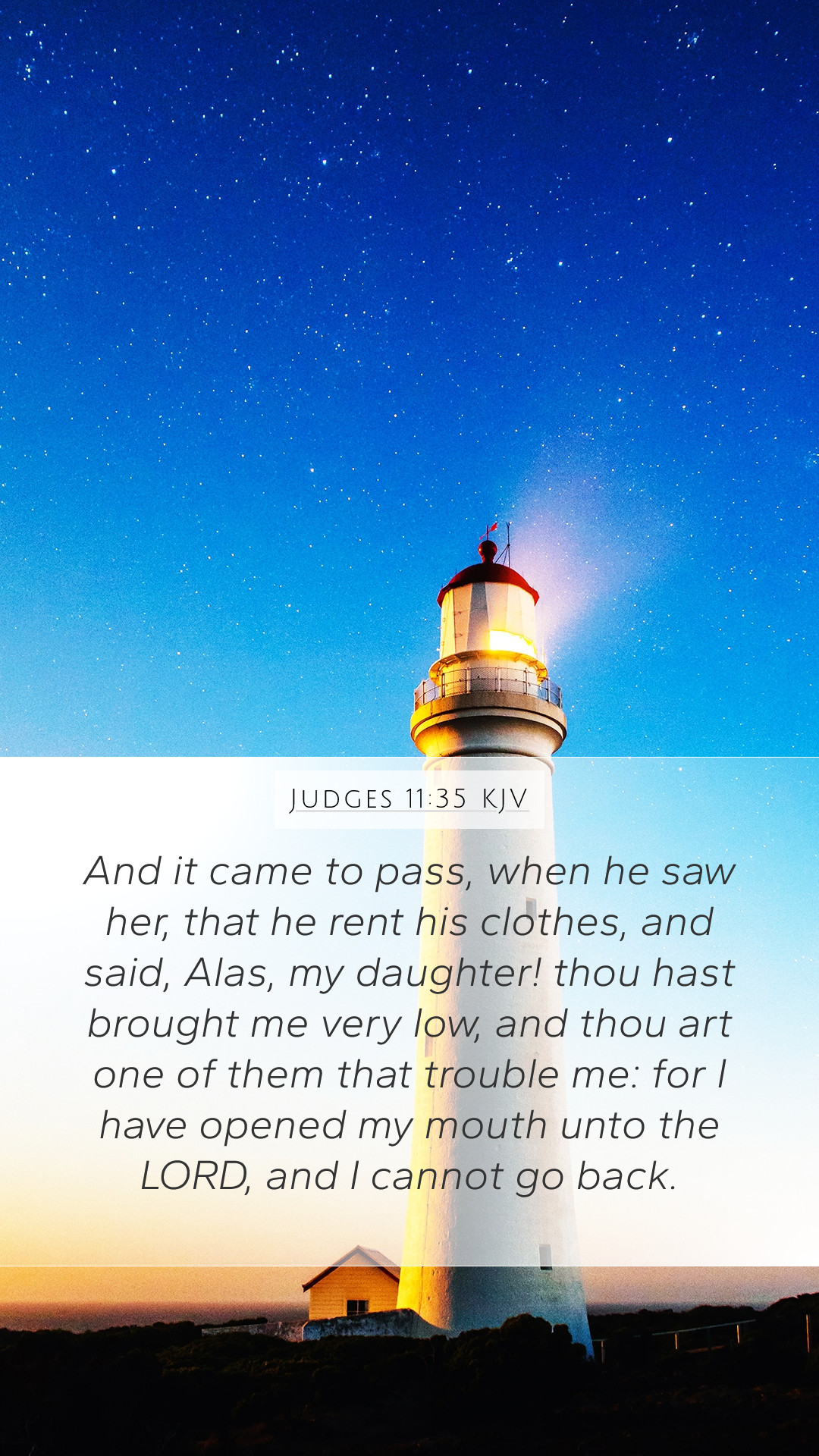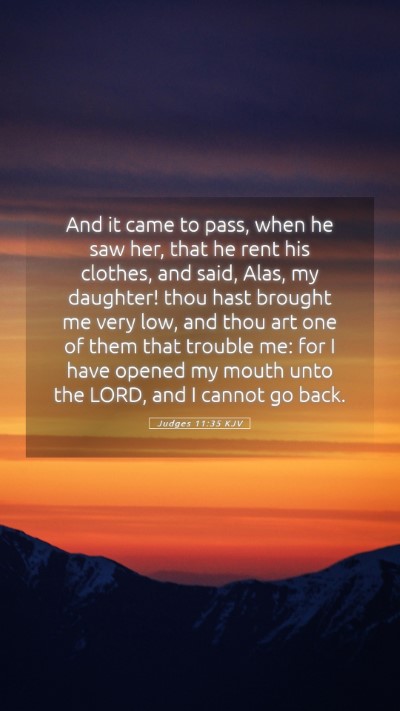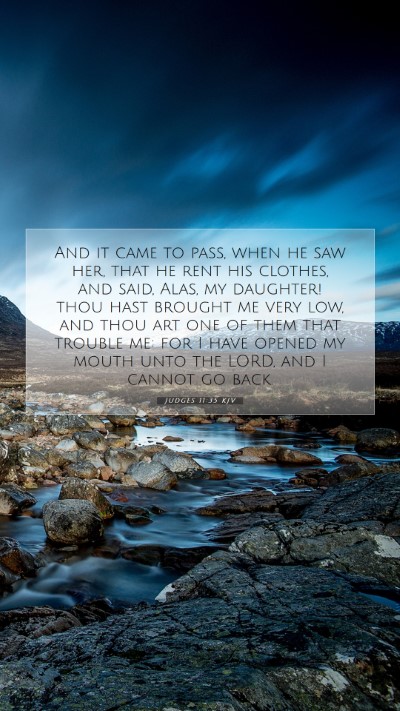Understanding Judges 11:35
Judges 11:35 depicts a poignant moment in the narrative of Jephthah, a judge of Israel. This verse captures his tragic response after making a vow to the Lord, promising to sacrifice the first thing that came out of his house upon his victorious return. The verse conveys deep emotional turmoil, reflecting the complexity of human vows and the dire consequences they can entail.
Bible Verse Meaning and Interpretation
The insights from various public domain commentaries help parse the depth of this biblical passage:
- Matthew Henry's Commentary: Henry highlights Jephthah's rashness in making the vow and suggests it reflects a lack of foresight and understanding of God's desires. He underscores that such vows should be considered carefully, as they can lead to dire outcomes.
- Albert Barnes' Notes: Barnes points out that Jephthah's grief upon seeing his daughter emerge is indicative of the tragic consequences of impulsive promises to God. He argues that while Jephthah acted out of faith, the vow itself was not aligned with the Lord’s intent.
- Adam Clarke's Commentary: Clarke examines the cultural context surrounding vows in ancient Israel and emphasizes the moral complexities involved. He notes that the implications of Jephthah's vow serve as a caution against making commitments without knowing their potential outcomes.
Key Themes and Lessons
This biblical verse provides several key themes relevant for modern readers:
- The Nature of Vows: The passage serves as a stark reminder of the spiritual weight of promises made to God. It highlights the need for careful consideration before making such vows, reflecting the principle that our commitments should reflect God's will.
- Consequences of Impulsiveness: Jephthah's anguish showcases the reality that hasty decisions can lead to irrevocable consequences. This theme is applicable to various areas of life, reinforcing the importance of thoughtfulness in decision-making.
- Faith and Sacrifice: While Jephthah's intent was to honor God, the resulting sacrifice evokes questions about faith practices and the nature of devotion. This tension invites deeper reflection on how believers approach sacrifice and service to God.
Application of Judges 11:35
The application of this verse can be profound in both individual and communal settings:
- Personal Reflection: Individuals are encouraged to evaluate their own commitments to God and to think through the implications of their promises.
- Bible Study Groups: This verse can be a focal point for discussions in Bible study groups, exploring themes of faith, decision-making, and the understanding of vows.
- Online Bible Study: Engaging with this passage in online Bible study formats can provide valuable insights, particularly regarding the implications of Jephthah’s actions and how they resonate in contemporary faith contexts.
Cross References
Judges 11:35 is related to several other passages that provide further context and insight:
- Leviticus 27:2-8: Discusses the nature and stipulations surrounding vows made to God.
- 1 Samuel 1:11: Highlights Hannah's vow and the significance of her commitment, offering a contrast to Jephthah's situation.
- Ecclesiastes 5:4-5: Teaches about the importance of fulfilling vows made to God without delay.
Conclusion
Judges 11:35 serves as a compelling narrative around the themes of commitment, sacrifice, and the unintended consequences of rash decisions in spiritual matters. Through the wisdom gleaned from public commentaries, readers can engage in deeper bible verse analysis and gain bible study insights into this layered scripture. This promotes a richer understanding and an opportunity for thoughtful application in the believer's life.


